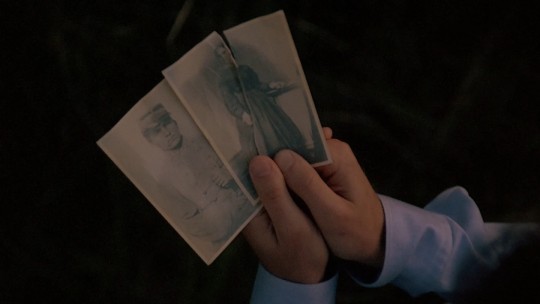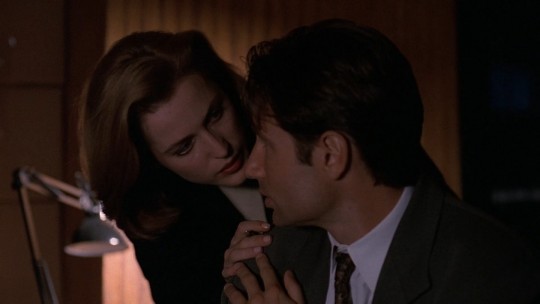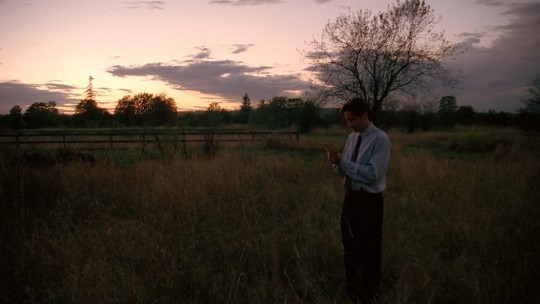#home :)
Explore tagged Tumblr posts
Text
We ask your questions anonymously so you don’t have to! Submissions are open on the 1st and 15th of the month.
#polls#incognito polls#anonymous#tumblr polls#tumblr users#questions#polls about the home#submitted july 9#polls about relationships#roommates#home#housing
408 notes
·
View notes
Text

In the daughter's bedroom the trompe l'oeil ceiling was painted by Lucrezia Moroni. Clarence House fabrics are draped on the iron four-poster bed and used on furniture throughout the room. An Art Deco mirror by Edgar Brandt hangs over the Louis XV chair.
Private Palm Beach - Tropical Style, 1992
#vintage#interior design#home#vintage interior#architecture#home decor#style#1990s#90s#bedroom#four poster#bed#Clarence House#fabric#trompe l'oeil#Palm Beach#Florida#luxury
230 notes
·
View notes
Text

#boynundaellerim#lostonyoubabe#mayonezli#home#benimevimsensin#omzumdakiegri#gamperisi#aesthetic#aestethic#sarhoskedi#asosyalbeyfendi#vintage#fecir#hayalperestkedy#rumll#loveisgame#kadehsenvegece#moon photography#cottagecore#self love#art gallery#writers on tumblr#love#radarplz#lilmakaron#poets on tumblr#flowers#cirkinkadininutopyasi#couple#love goals
211 notes
·
View notes
Text

#ai woman#ai girl#ai babe#ai artist#ai model#ai image#ai art#ai artwork#ai art gallery#ai generated#ai beauty#ai sexy#ai nude#ai hot#dream#necklace#home#flowers#braids#ai anime#anime#ai
102 notes
·
View notes
Photo
Lovely 🌺

Frances
3K notes
·
View notes
Text
Cute 🎈







The Vibrant Doors of Lisbon Part 2
#girina#home#home decorating#light academia#dark academia#classical#academia aesthetic#escapism#academia#books and libraries#classic literature#books#architecture#travelling#colorful
2K notes
·
View notes
Text

Private Palm Beach - Tropical Style, 1992
#vintage#interior design#home#vintage interior#architecture#home decor#style#1990s#90s#porch#pool#Palm Beach#garden#landscape design#tropical#Florida
73 notes
·
View notes
Text
Good point
“A house doesn’t become a home until love moves in.”
— Faraaz Kazi
#Faraaz Kazi#quotes#motivation#inspiration#thepersonalquotes#literature#lit#feelings#home#house#house-rules#love#romance#my life#life lessons#tumlbr#love actually
3K notes
·
View notes
Text


#omzumdakiegri#lostonyoubabe#mayonezli#aesthetic#benimevimsensin#aestethic#cirkinkadininutopyasi#sarhoskedi#superkursunaskr#vegayildizi#boynundaellerim#umut bitti sigara ver#love goals#lilmakaron#gamperisi#couple#petricorsworld#kesfet#kaanbubelli#visnelimeybuzz#fecir#hayalperestkedy#umutbittigezegeniyakin#radarplz#home#yamuluyorsanicmiycen#kadehsenvegece#flowers#vintage#couple love
134 notes
·
View notes
Text

#ai woman#ai girl#ai babe#ai artist#ai model#ai image#ai art#ai artwork#ai art gallery#ai generated#ai beauty#ai sexy#ai nude#ai hot#dream#necklace#home#braids#ai anime#anime#ai
72 notes
·
View notes
Text
The Field Where I Died: The Tragic Flaws of Glen Morgan and James Wong

My thoughts on The Field Where I Died are divided into neat little categories for this episode: frustration for what we were given, acceptance of its existence, anger at Glen Morgan and James Wong's behind-the-scenes revelations, acknowledgment of their feelings, determination that the end product's truth was different than what was originally conceptualized, and genuine understanding of others' love for its creativity and vision.
But those thoughts are inseparable from a broader perspective of Morgan and Wong's work on Season 4.
I'm going to be pulling a lot of information from an interview here; but to save time (and sanity), I'll emphasize the quotes in italics instead of continually citing my source.
"I CAN DO BETTER" VISIONARIES

(Credit to: @sleepyscully.)
It's no secret that Morgan and Wong always wrote-- shall we say-- angsty episodes that drove a wedge in Mulder and Scully's relationship. Sometimes that was executed brilliantly-- Squeeze, Beyond the Sea, Home, Never Again-- and sometimes that was executed... badly. Their bent is the nature of conflict, and its potential resolution; or ideals and tarnished realities; or things we thought we knew and understood but never really did. And those are powerful tools... if, like all tools, they're wielded effectively.
They're the difference between the ridiculous conceit of Musings of a CSM-- an episode that set everyone against each other (we'll get to that)-- and Beyond the Sea-- and episode that wowed Carter (convincing him to keep Gillian on the show), fans, and critics alike.
I've already tackled how The Field Where I Died could work here (how Scully broke the cycle) and here (Scully, snakes, and reincarnation.) I have no qualms with the idea that Mulder and Scully themselves aren't romantic soulmates in every lifetime: that was never the magic of their relationship, to me. And I do love the concept that Melissa serves as a contrast for Mulder: as Morgan says,
One reason why I wrote Melissa that way was my notion that if you’re Mulder and you found your soulmate, the love of all your loves, within the body of this unappealing person, what would you do? I don’t know if we totally explored that. I don’t know if Duchovny would agree with me – he knows more about Mulder – but I think Melissa is the type of women that Mulder would be attracted to. Someone like Bambi in ‘The War of the Coprophages’ is good for a joke, but I don’t really see Mulder going after her. There’s something sad about Melissa. There was a secret within her that was important for him to get at. That mirrors his life, and his own search for his sister. He is a character whose whole drive is to help everybody, but he’s so unsuccessful at that, and with helping himself. All he wants is to find one person that he can rescue – but he’s not too good at it.
No matter how despairing Mulder is, Morgan said, he would not be tempted, like Melissa, to end his life. “I looked at Melissa as if she decided reincarnation might be true, and that if she had chosen this life, at that point she realized, ‘This is a bad idea. This is a miserable life and I’m not getting much out of it. I’m just going back to heaven and I’ll wait for you.’ She wanted out. But Mulder, as much as he’d love to go to the other side to see what’s there, is a life-affirming character. He’s going to keep on looking. He’s not going to quit. Mulder has questions for this life.”
That rings true to me.
What I do have qualms with is that Mulder and Scully's incredible, undeniable, written-into-canon-at-this-point connection (that was established in the Pilot, purposefully, by Chris Carter himself, post here) is boiled down to a destined, warped tri-connection that is part of and secondary to his (chemistry-less) connection with a woman that doomed him in every lifetime. A woman who is an unreliable narrator, and who could easily be swaying Mulder into believing her story because of her own form of mental instability and fragility. It could be a beautiful love story, and it's undeniably beautifully shot (and mostly beautifully written), but it's not Mulder's-- it's Morgan's:
For Morgan, an episode about reincarnation and eternal soulmates was not just a good story for Mulder, but a personal expression of the thoughts and emotions he had experienced during the past year, when his relationship with Cloke grew from friendship into romance (they are now engaged), “I had gone through a failed marriage in which I had really believed,” Morgan revealed. “I had always wanted to believe there is somebody out there for you, and I had been in a situation where that didn’t come true. And I thought, ‘It’s a lie. That person you think is out there for you is a lie.’ But then I met Kristen and I was rejuvenated by that. I really thought. that you can be reborn in this life, not just life after death. I regained faith that there is one person for you, one person who, by being in your life, can motivate you to change the crappy things you were doing before. In this case, it was Kristen. I knew she did a lot of characters and voices, so I wanted to incorporate that.. I wanted to write something for her that challenged her. Also, I wanted to write something for David Duchovny that challenged him.”
("Challenged", indeed.)
And that... that rubs me the wrong way.
NOT EVERYTHING IS ABOUT YOU
I'm not here for Glen's romance, I'm sorry. I'm here to be persuaded that Mulder might have a soulmate, that Scully might be a soulmate, that all three could be bound in this doomed pattern for lifetimes; and if that cycle was broken with Melissa Ephesian's death. (More importantly: does Mulder and/or Scully believe it's broken?) What we were given instead was a memoir to love in general that shoehorned itself into the show without regard for canon.
I'm not angry with TFWID as much as I am other episodes (most of Existence and canon onward, for example) because Mulder and Scully's characterization never strays-- Field may have been carelessly wedged in, but it was skillful with its emotional exploration. Further, the events and facts presented so summarily contradict each other that there's no real "threat" propped up by its existence. And, while I can't excuse the cringe-inducing acting from Morgan's wife, I can explain why DD's turned out so "badly" (read: jarringly):
Bowman’s director’s cut ran so long that Morgan and Wong were forced to trim twenty minutes out of the episode.... Morgan felt that the emotional impact of Mulder’s hypnosis session might have been marred by the cutting, since it interfered with the flow of Duchovny’s acting throughout the entire scene. “I called David and I said, ‘I’m cutting it this way.’ I could hear that he was upset. I know what actors go through to prepare, and then to have to sit in a chair for a couple of hours in front of a bunch of grips and gaffers and people that they hang out with everyday, and cry – it’s just like taking off your clothes. And then to find it’s been cut out. I had to come home and tell Kristen, ‘Look, this part is coming out.’ She was upset and David was upset. Jim was off prepping ‘Musings of Cigarette Smoking Man’ or doing something and I was just very alone.’
(For context, the hypnosis scene was originally twelve minutes long.)
While I might be tempted to sympathize with Morgan, he didn't extend that sympathy equally to his wife or Duchovny, instead turning this combined loss into a one-sided self-pity party.
MULDER THE SACRIFICE, SCULLY THE SAVIOR

I also have a theory that Carter was writing Scully as a savior and Mulder as a sacrificial lamb for the mainline series (until he made William a magic baby and ruined eight years of build-up), post here.
There's a reason that The X-Files is told through Scully's perspective; and that Mulder is often compared to Ahab chasing the White Whale, to a man on a fated quest, to a boy who lost his sister and can't live freely until he has that closure. There's a reason that Scully is Mulder's "one-in-five billion", his salvation ("But you saved me!"), his constant, his touchstone-- and his "human credential", as David Duchovny put it. There's a reason that Carter banked an entire series off of a chemistry and bond he wrote into the graveyard scene, and maintains that that is when Mulder and Scully fell in love (though to what degree is up for fanon interpretation.) There's a reason that the CSM was wrong to picture Mulder as a Christ-like figure, and Scully was right to walk into Mulder's subconscious and rescue him with the truth ("Get up and fight.") There's a reason that Mulder's rescue in Deep Throat underscores his and Scully's partnership from then on out: he in danger-- be it from Jersey Devils, moth men, fated love triangles, Houston bombs, brain surgery, alien abduction-- and she his rescuer (discussed a little here.)
Why is this important? Because The Field Where I Died's concept is not without canonical merit: Mulder running headlong into danger, Scully holding him back long enough to prevent the cycle from repeating. And it ties into the mytharc's ad nauseam question of Fate v. Freewill (posts here and here.) TFWID could even work if you factor in the theory of Scully's immortality (post here.)
But the reality is, Morgan and Wong were not going for canonical adherence.
THE WONDER OF THE SUPERNATURAL, THE FAILURE OF THE HUMAN CONNECTION
Episodic timeline goofs and gaffes aside, the problems in The Field Where I Died lie deeper than which woman Mulder loves and which one he perpetually makes friendship bracelets with. The greatest problem arrives, settles, and stains with the introduction of soulmates: the recontextualization of the infamous MSR dynamic.
Morgan was focusing again on Mulder and Scully as humans; but he fumbled, amplifying then explaining away their "unspoken" as a supernatural connection rather than the meeting of uncannily similar minds:
Apart from personal considerations, Morgan and Wong wanted to reorient the show’s attitude towards the paranormal, which they felt in the third session had been expressed far too often as something evil or wrong. “The paranormal isn’t about death or evil,” Morgan said. “It’s about wonder.” In line with this approach, he and Wong wanted to avoid writing a conventional villain; instead, the principal conflicts take place between Mulder and Scully or are internal, with both Mulder and Melissa haunted by their pasts, in this life, and perhaps previous lives.
Morgan and Wong wanted to zero in on two humans, and all their complications as such, brushing up against the unfathomable, neutral force beyond their comprehension... but then ruined that message, that build-up, by justifying the personal, human aspect-- their connection-- by making it inhuman, unnatural, and supernatural, too. All the while, of course, telling us (and believing themselves) that fans were upset because they introduced another romance for Mulder.
(As a side note: why do I excuse-- for lack of a better word-- David Duchovny's similar sentiments towards TFWID and its reception? Firstly, he, and others, genuinely loves it; and I'm happy for him. To David, it seems, love is more powerful when it is guaranteed for a lifetime and beyond-- the insecurity of someone falling out of love, platonically or romantically, is more powerful than a finite and fickle love that can be lost or tarnished. That being his interpretation-- and Morgan's intention-- I can see why he'd love TFWID. It's a powerful sentiment. More importantly, the man doesn't hold it against fans-- he thinks they misinterpreted its intent-- like Morgan thought they did-- understands why it would disgruntle, but maintains that he loves it, regardless. I can respect that position, even if we disagree; because the heart likes what it likes. I, for one, have my own likes that others might hate.)
LAZILY WRITTEN
The greatest mistake of all-- one Morgan humbly recognizes-- is the faults in the writing. Well... more accurately, that he and Wong failed to keep a complete vision that would (most definitely, guys) translate better to audiences. His ideas, I concede, were intriguing; but like all mediums, the final product is what audiences are left to judge and believe in. For TFWID, it was mixed up before the scenes were filmed, and hacked apart after the footage was wrapped-- so much so, that Morgan kept realizing the magnitude of his mistakes after the fact:
Under hypnosis, Mulder describes a scene of death and destruction from the Warsaw ghetto; in this past life, he is a Jewish woman, Scully is his father, Samantha is his son, and the Cigarette Smoking Man is a Gestapo officer.
Next he [Mulder] becomes Sullivan Biddle, already dead in battle, Scully is his sergeant, and Melissa is there, as Sarah. He has no information on the bunkers, all he sees is death. Morgan wrote these scenes to express the overwhelming sense of loss that Mulder has felt his entire life. The scene was shot in extreme close-up, inspired, Morgan said, by his love of Ingmar Bergman’s films. “To spend three quarters of an act, six or seven minutes, in close-up, on television, is wonderful,” he said. “On TV, we’re always cutting back and forth. We’re always blowing stuff up. Jim and I participate in that. Act Four of ‘Home’ couldn’t be more different than act three of ‘The Field Where I Died.’ I’m proud of that. ”
(And you might have blown it, Glen.)
Morgan’s enthusiasm for the scene was not matched by a good number of the show’s fans, who felt the scene was overwrought, both in the writing, and in Duchovny’s performance. “I think both Kristen and David did a great job,” Morgan said. “David just can’t win. If he walks around going, ‘Scully, I’m going here. Oh. Extreme possibilities,’ everyone says, ‘...that guy just mumbles his way through.’ If he emotes, people don’t want to see that. People can say his acting was bad. I don’t think that it was, but some felt it was obviously ‘acting.’ It’s in a close-up, it’s a long monologue, so it points to acting.
(An unnecessarily long scene that, unfortunately, had to be chopped; and was chopped so badly that, consequently, it lost its nuance and made Duchovny look like a fool by proxy.)
Bowman’s director’s cut ran so long that Morgan and Wong were forced to trim twenty minutes out of the episode, including eliminating one of Melissa’s personalities, a crude loudmouth named Jobee, as well information that supported Scully’s viewpoint, and large sections from Melissa’s and Mulder’s hypnosis sessions
“If we’d focused on Scully’s viewpoint more, we could have thrown up the idea that maybe Mulder’s wrong, maybe this is just wishful thinking,” Morgan added. “I know this sounds really bad, but to me the hypnosis scene is more important than a teaser. I was desperate to cut out time, and in favoring emotional content over plot content, I might have blown it.”
[Morgan]: "... I read a post online asking why Scully was always a man in the past, and I hadn’t thought about that. I wish I had altered that; it was a mistake.”
And it wasn't just TFWID that was littered with inconsistencies in service to Morgan and Wong's vision.
TFWID, "MUSINGS", AND THE BLAME GAME

When Morgan and Wong returned from their other writing projects, they had to decide whether to leave the studio-- angry at its interference-- or take a deal and partly work for The X-Files and Millennium. Obviously they chose the latter, and rejoined after a hiatus of one or two years. In that time, the X-Files had become a hit. But M and W had changes, and plans to execute those changes, in mind: they both thought that the show had strayed from its original vision-- again, the "wonder" of the paranormal and supernatural-- and would be set to (better) rights with their input and direction.
Not all of their work was flawed-- Home and Never Again were tightly written-- and not all of their ideas were self-involved. For example: when joining the show, they and the other writers were told this season's purpose was to drive a wedge between Mulder and Scully, and framed Never Again around that idea:
“My understanding at the beginning of the year was that we were going to drive to a point where Mulder and Scully didn’t trust each other,” Morgan said. His own scenario for plotting out the season was somewhat different from what Carter and the other writers came up with this year, but the fundamental issue was the same: trust. “I would have slowly split Mulder and Scully up over the course of the season, then in the last episode have Scully put Mulder away for his own good, which he would perceive as the ultimate betrayal,” Morgan said. “And then the next season, they would have had an entire year’s healing to go through.”
That's not an entirely unreasonable direction to take, either.
The other writers had other plans. For good or ill, it was Chris's show; and Chris wanted to steer it in a certain direction. Those who joined and added their thoughts cohesively helped construct the mainline arcs that bloomed into Season 4's cancer revelation and Season 5's lack of faith, as well as building up Fight the Future concurrently. M and W, however, felt bruised when their visions were either tweaked or countermanded; and left the experience disgruntled. For good or ill, Chris Carter, Glen Morgan, and James Wong all had good and bad ideas; but only one of them had created the show-- something which the latter two couldn't, at times, accept.
Case and point: I detour to Musings of a Cigarette Smoking Man because that episode-- from its conception to its creation to its execution-- explains clearly what led Morgan and Wong astray.
Home was successful, The Field Where I Died much less so. For both episodes, Chris Carter seemed content to let Morgan and Wong do whatever they wanted. However, a shift occurred when fans fell out of sync with M and W's vision (TFWID); and that shift manifested when Glen and James immediately wanted to jump into a CSM backstory, the mytharc domain of CC. Both writers felt the big bad of The X-Files had become gutless; and they wanted to inject some terror into him by killing off Frohike in the end. Per their original vision, the narrative element was excluded and CSM would reclaim his villainy via a Forrest Gump monologue then follow through by gunning down an innocent man. Chris Carter, meanwhile, did not want Frohike killed and did not think that CSM would care to waste time murdering a relative nobody to his life and work. William B. Davis, CSM's actor, was also insistent this version of CSM was not his character; and was so dissatisfied with it that he called up CC himself. Carter tried to appease all sides with a compromise: letting M and W write what they wanted (within limits) and reassuring himself and WBD that this episode wasn't canon:
Davis promptly called Carter to ask if this was the real history of the Cigarette Smoking Man (Carter told him no).
...“The Cigarette Smoking Man’s flashbacks were my idea, because I indeed wanted the episode to be a memoir,” Morgan said. But the idea that Frohike could be the real narrator was a Carter-imposed addition to the script, to make it seem as if the events of the episode were not real. Carter even changed the name of the script, from “Memoirs of a Cigarette Smoking Man” to “Musings of a Cigarette Smoking Man.”
[Wong]: ...“The line where Deep Throat says, ‘Maybe I’m not the liar’ was another change imposed on the script so you could make the leap that perhaps this is all. a dream, or the ramblings of Frohike.”
If that weren't potentially explosive enough, Morgan and Wong went behind Chris's back, consulting others on set to create their vision, anyway. When CC turned down Glen's dogged request, twice, to film an alternate ending, Wong took matters into his own, unauthorized hands:
Morgan and Wong felt so strongly about this issue, that they decided to try an end run around Ten Thirteen. They figured that if they filmed the scene their way, and cut it into the episode, it would be so powerful that Carter would have to agree with them. Morgan called Wong up in Vancouver and told him to take a few crew members while everyone else was at lunch, and get some shots of blood spattering on the sign to the Lone Gunman offices. Wong decided against the stealth approach; instead, he filmed William B. Davis pulling back on the trigger, and Tom Braidwood, as Frohike, getting a bullet in the head. Morgan nearly panicked when he heard what his partner had done; he was certain word of it would reach Ten Thirteen down in Los Angeles. His fears were justified.
Carter, meanwhile, allegedly proved how cleverly his fingers always remained on the pulse of the show:
Wong recalled: “I was in the editing room, and I said to the editor, why don’t we print up the B negative? We’ll cut it in and show Chris. [The “B” negative was the negative with the footage of the Cigarette Smoking Man pulling the trigger and Frohike getting shot.] And the editor told me, ‘You can’t do that.’ I said, ‘What do you mean, we can’t do that? Just print the B negative.’ He said, ‘Well, it’s been taken out of the lab. It can’t be found.” In a move worthy of a scene from an X-Files episode, someone had deliberately removed the negative without telling Morgan and Wong, and they had no idea where it was.
(And how do we know this was CC's doing? Because every single actor, writer, and director interviewed always marveled at his inhuman ability to be aware of every single, teeny tiny detail on set.)
Apparently, the incident blew over wordlessly, so much so that Chris asked Glen and James to help flesh out Millennium and called them up, years later, to craft the Revival with him (and sat nearby while Morgan teasingly alluded to the above incident, just a few years ago.)
To tie it all back to The Field Where I Died: the work they created-- while beautifully written-- was sloppily fitted into the show they were hired to write for:
And then there were the timeline inconsistencies, which Morgan and Wong didn’t even know about until the episode aired and Morgan logged on and was bombarded with dozens of internet posts complaining that the events of “Musings” couldn’t be for real, because they contradicted the teaser to “Apocrypha.” In the “Apocrypha” teaser, which is set in 1953, a young Cigarette Smoking Man (already smoking), a young Bill Mulder, and a third man, all in civilian dress, question a horribly burned submarine crewman who had encountered an alien in a flashback shown in the previous episode, “Piper Maru.” Morgan’s version proposed an entirely different history, with the young Cigarette Smoking Man and Bill Mulder, both Army officers, first meeting in 1961 at Fort Bragg, North Carolina. The Cigarette Smoking Man doesn’t even smoke, until he takes his first nervous puff late in the first act. Although Morgan and Wong had seen “Apocrypha,” they didn’t remember the events of the teaser. “Okay, we’re sloppy,” Morgan admitted.
To top off the battle of egos, Glen and James laid a portion of the blame at the nameless feet of some faceless "other" rather than taking it upon themselves... or having the guts to point the finger at one person in particular:
“But somebody should have told us. They all read the script. It was the same thing that happened to us on ‘Little Green Men when we showed Samantha’s abduction.'” Added Wong: “If somebody had said, ‘Hey, you know, in the third season, this was said and this doesn’t make sense anymore.’ And we would have changed it. But nobody told us that And the internet people go, ‘This doesn’t make sense,’ and now we look like idiots. We have part of the blame obviously; we didn’t know. We didn’t catch it.”
(It's easy to feel for them and their position... until you realize that there is no evidence-- that I have found-- of them asking if there was a show bible or other resource to consult. Meaning, again, that M and W have to take some blame for this grievance, as well.)
And last but not least, they-- particularly Glen Morgan-- martyred their pain instead of fully accepting and owning their own part in this ever-evolving disaster:
But their disappointment over the changes they were forced to make “Musings of Cigarette Smoking Man” caused them to withhold the ghost story and look for something else. “I had done a lot of research and I had always wanted to write a feature about Lincoln’s ghost,” Morgan said, “But I felt they didn’t want my heart and soul anymore, so I wouldn’t give this one to them."
CONCESSIONS

While these two scalawags contributed their fair share to frustrating and complicated behind-the-scenes shenanigans, their instincts weren't completely wrong, nor all their conduct unrighteous.
They were right on the money with Home--
“Thematically, Sheriff Taylor was doing the same thing that the brothers were doing. They didn’t want things to change,” Morgan said. Scully conducts an examination on the baby, and when the DNA tests come back, she is shocked to find results impossible to believe; they indicate the child had three fathers.
“It was much more controversial than we thought it would be,” Wong said. “Some fans were repulsed beyond analyzing the show; they were just kind of sickened by it. They were pretty turned off. Some people loved it. There was a lot of really, really negative reaction.”
“I have really been stung by that whole reaction,” Morgan admitted. “To me, the show must have become so big while we were away. I think a lot of people hadn’t been exposed to what we did when we were first on the show. They were going, '...what are they doing?’ and we go, ‘But, this is what we always did!’ We had “Squeeze,” or episodes like Chris’ ‘Irresistible,’ these shocking, horrible shows. Act four of ‘Tooms’ I think is on a level with ‘Home,’ so we were going, ‘What is all the ruckus about?’ We figured a lot of people don’t know that earlier stuff, or certain tones that we were going after then.”
-- and Never Again--
“He’s been caught off guard by not knowing something about her,” Morgan said. “A date with someone in Philadelphia, someone he’s never heard of, someone she’s never told him about. He’s unnerved by his lack of certainty about her, with her being wrong about Ed.” The episode ends with Scully telling Mulder firmly, “It’s my life,” and Mulder saying, “But it’s…” and suddenly stopping. Why didn’t he finish his sentence? “It was our way of saying to the other writers, ‘Here’s where Mulder and Scully are, and now the ball is in your court,'” explained Morgan. “That’s what I always felt was our role. In the first couple of years when we were on the show, we might hand it off and then have to pick up the ball ourselves a couple of episodes later, but knowing we were about to leave and would have no input whatsoever, we just said, ‘Well, here’s this thing, how about this? Now it’s yours.’ I feel that Mulder had come to respect that there’s more to this than just him, that Scully is now a part of his life and he’s a part of hers. I think that she learned the danger of exploring the rebellious side, and that it has to be accompanied by responsibility. What she did almost got her killed. So I think that she probably has it a little in check, and yet she’s always carrying the memory of it on her back. It isn’t anything for her to let go of. But next time she’ll be smarter about it, and she won’t let it get so far away from her.”
--and were misunderstood both times.
They were also wrongfully done by here or there--
Morgan had the unhappy task of telling an understandably upset Anderson that the scene she specifically requested had been cut.
Morgan and Wong were frustrated once more when the network decided to move “Never Again” out of its post-Super Bowl slot, and substitute “Leonard Betts,” the episode that was originally scheduled to air after “Never Again.” “Leonard Betts” ended with the wrenching realization by Scully that she might have contracted the cancer that afflicted the other female abduction victims she met in second season’s “Nisei.” This revelation impacted the rationale behind Scully’s behavior in “Never Again” in ways never intended by Morgan and Wong. “I felt horrible,” Morgan stated. “Those are not her motives for her actions in this episode. The motives in ‘Never Again’ are completely altered by posing that she has a disease or a death sentence...."
-- but did wrong themselves, despite unprecedented creative freedom (see the previous section.)
The trouble, it seems, is an inability to differentiate the criticisms they receive. The pearl-clutching, deaf-and-dumb moralizers over Home are not the same crowd scratching (nay, banging) their heads over the blatant and illogical inconsistencies in The Field Where I Died and Musings of a Cigarette Smoking Man. (In fact, the last episode mentioned aged nicely, if the IMDb numbers haven't lied.) And that trouble compounds when they can't understand why a behemoth ship, constantly taking on mounting expectations and schedules, might halt for pit stops but won't change course for inconsistent passengers.
Lastly, while I can sympathize with the emotions both Glen Morgan and James Wong felt for having their work constantly tampered with, that sympathy dwindles when contemplating a few factors:
They were working for someone else's show, not their own.
They were given unlimited creative freedom upon their return, and were only reigned in after their projects continued to falter.
They were butting heads against two factors that the show runner himself wanted to keep ambiguous or under hat: CSM's backstory and Mulder and Scully's lives outside of work.
Having one's spirit crushed by back-to-back disappointments can't solely fall on the shoulders of the network or show runners when the first two ventures weren't touched, tampered, or changed (except for a run time you knew you had going in); and they can't fall solely on fans when the end results provided were lackluster in quality.
And an important last note: I do not feel that Glen Morgan or James Wong acted maliciously-- carelessly, mostly; overly self-involved here or there, most probably. Their focus remained on fleshing out the characters, exploring the ramifications of their actions, and digging up and handing over imperative context for canon-- attempting to iron out Mulder and Scully's split-up, William's adoption, and Charlie's estrangement in the Revival, for example. But they're not saints; and they still have an edge against criticism and interference that clings to and eats away at the quality of their work. In short, we are only glimpsing one aspect of Morgan's and Wong's lives during an intensely frustrating moment in their lives-- but it was important enough to The Field Where I Died's lore that I felt it was crucial to share.
CONCLUSION

For me, I'm glad Morgan and Wong messed up so badly that Gestapo CSM was still alive when canon CSM was born. To me, I think Morgan was way too eager (kindly, I shall reframe from saying 'self-involved') and way too disinclined to ask for necessary criticism for his projects. To me, I'm certain Morgan and Wong cared more about their concepts than the canon they were writing for-- making Mulder and Scully platonic (but could become romantic?) soulmates without providing essential explanation or further clarity. To me, I think focusing only on what Mulder gets out of this arrangement-- instead of exploring how this would affect Scully, as well-- was a cheap maneuver to vehicle in Morgan and his wife's love story (the same impulse that drove Morgan to write Melissa Scully as a romantic option for Mulder, that inspired the death of Frohike, and that butchered Maggie Scully's deathbed in Home Again: the impulse of wanting things his way.) For me, I'm glad this episode was too long, was chopped up very badly, and was ultimately exposed as a vanity project by fans' negative reactions. And, to me, I believe that negative reaction was largely brushed aside-- ignorantly, though not maliciously-- by Morgan because "fans just wanted Mulder and Scully together."
And, lastly: to me, Glen Morgan and James Wong-- while wrong to some extent-- at least take (partial) fault for their vision going awry. We're all human, we all make mistakes; we all learn and grow.
The rest I leave to you to draw your own conclusions.
Thanks for reading~
Enjoy!
#txf#xf meta#TFWID#Glen Morgan#James Wong#mine#S4#The Field Where I Died: The Tragic Flaws of Glen Morgan and James Wong#The Field Where I Died#Home#Musings of a Cigarette Smoking Man#Never Again#thoughts#x-files#the x files#xfiles#Mulder#Scully#interviews#quotes
43 notes
·
View notes
Photo
daBarrel

616 notes
·
View notes
Text

ourSummerVibes 🌿
#style#addiction#nnfc#life#home#she is gorgeous#she is so hot#brasil#she is stunning#she is hot#she is so beautiful#she is so gorgeous#she is so fucking beautiful#sexy pose#sexy and beautiful#sexy and hot
35 notes
·
View notes
Text
2025 Glöcklerlauf Unterach ✨
Today my village had the annual Glöcklerlauf - a beautiful parade of bells and lights. It is said that while Perchten chase away evil spirits, the Glöckler usher in good ones as the Rauhnächte end. The darkest part of the year is over! I love this folk practice and I love getting to share it with people. If your culture has a winter tradition of ushering light, I’d love to hear about it! 🕯️🔔
48 notes
·
View notes
